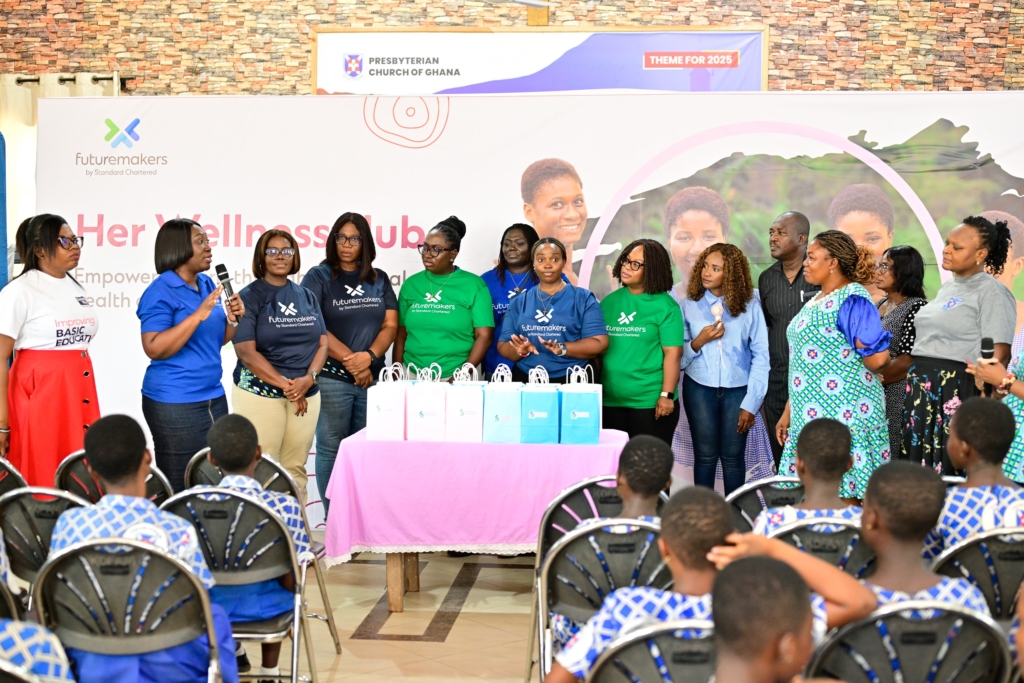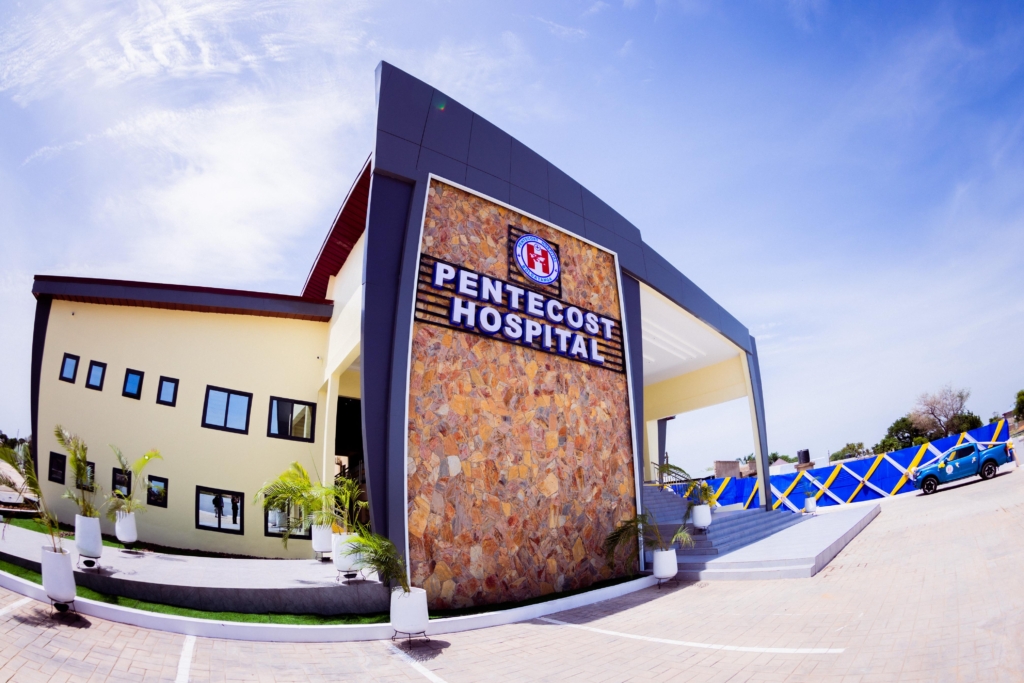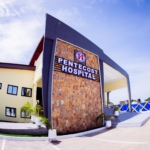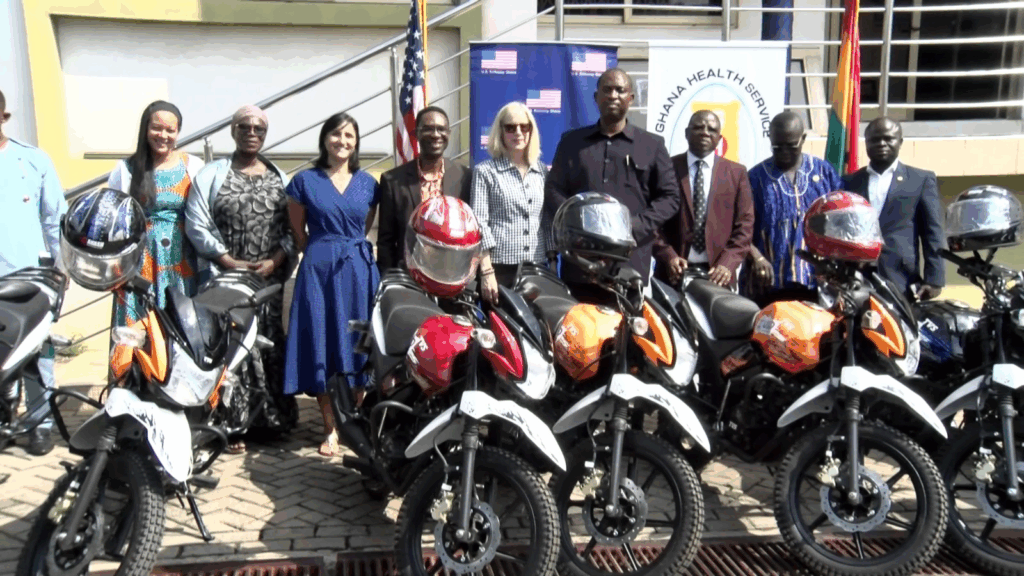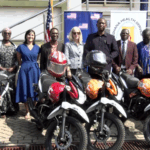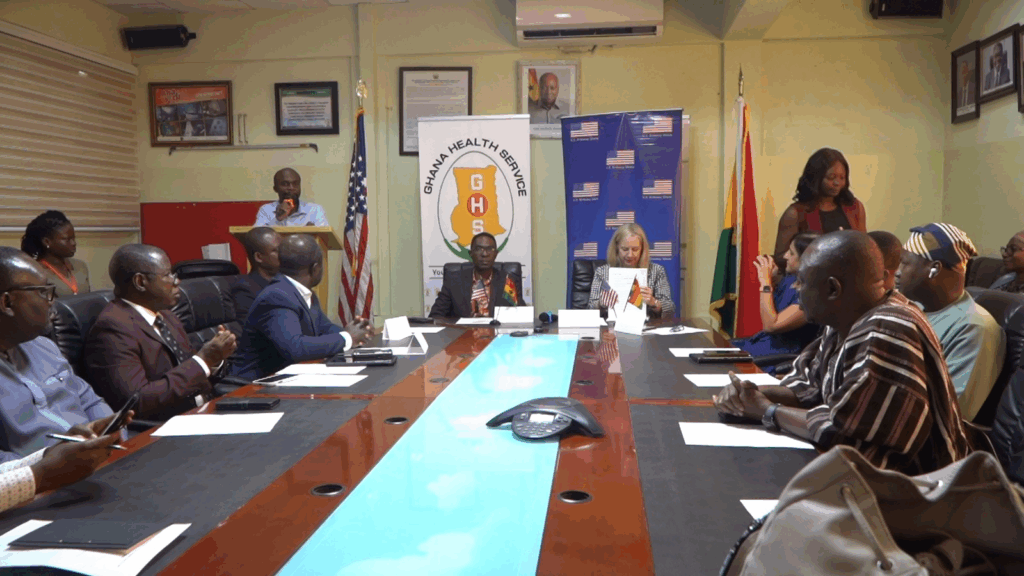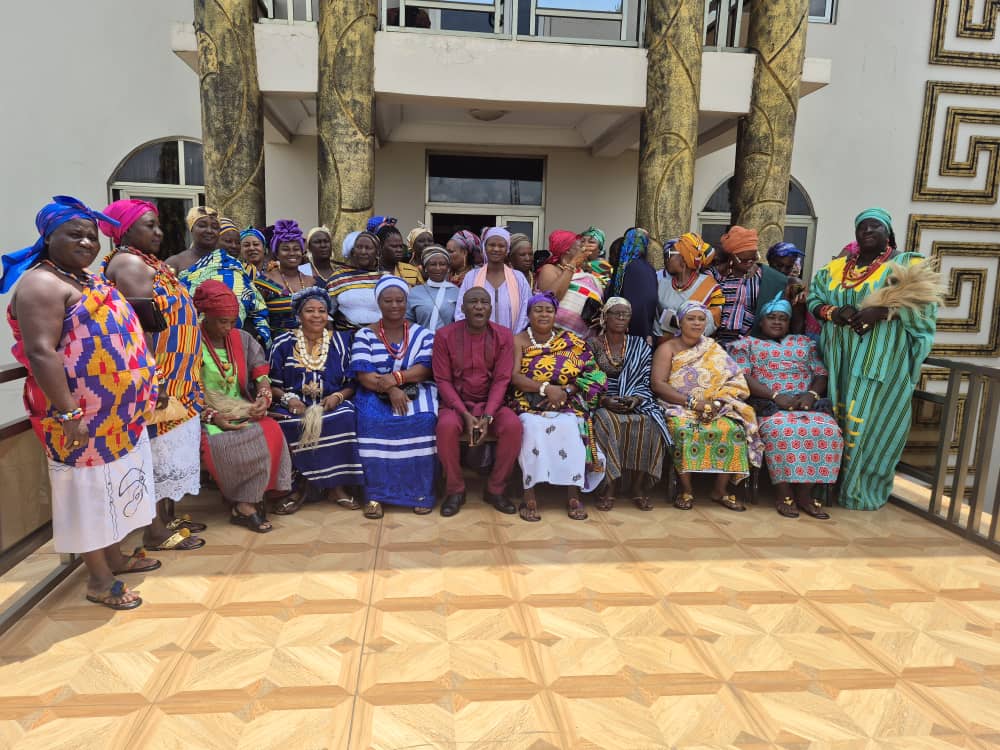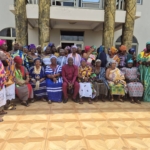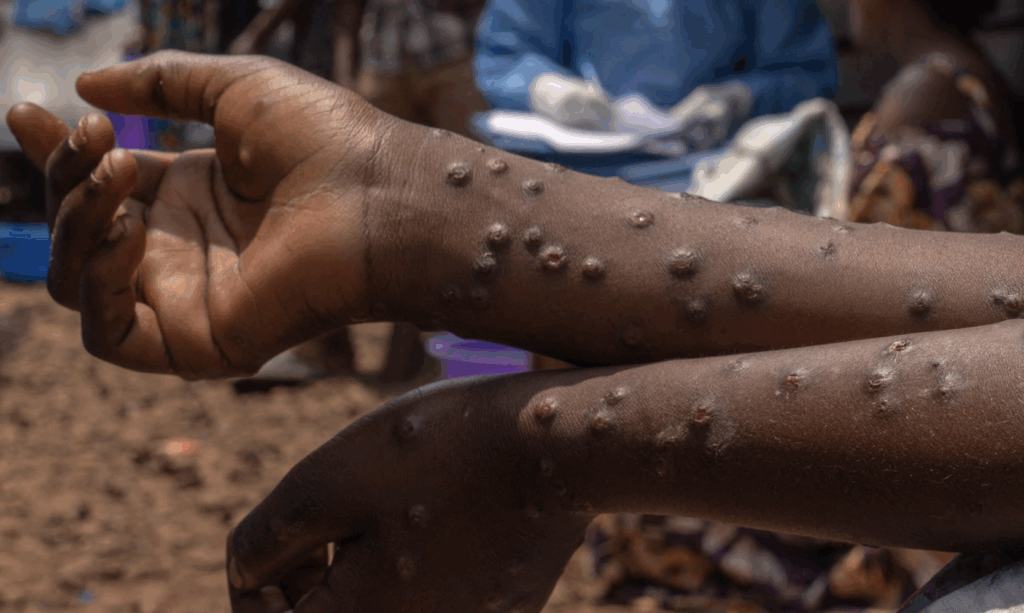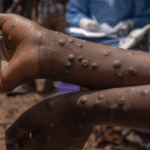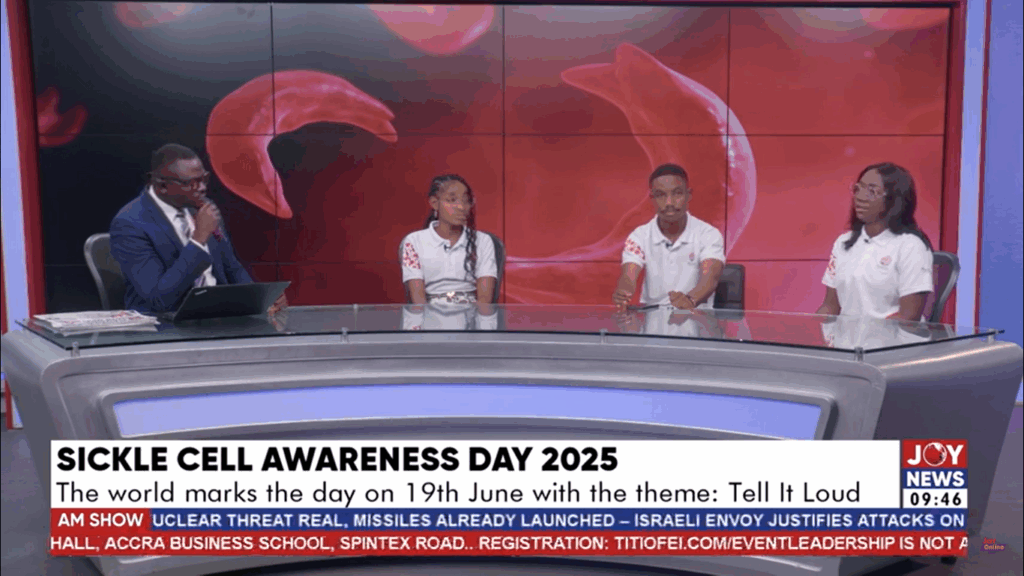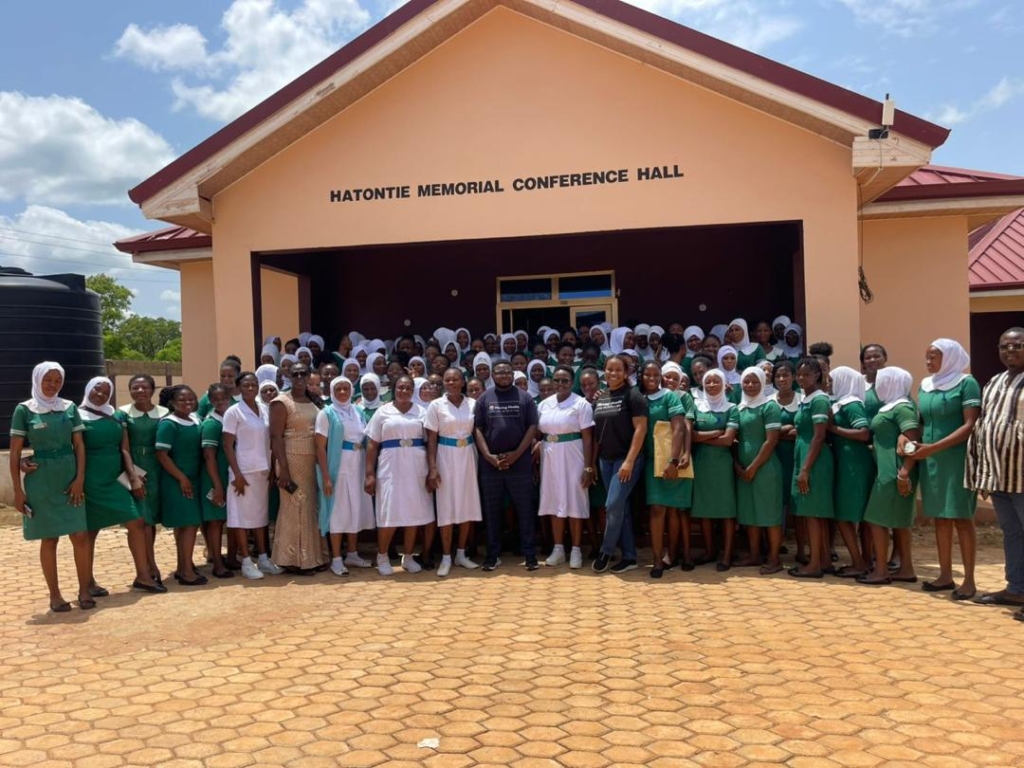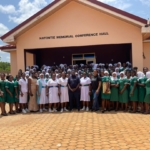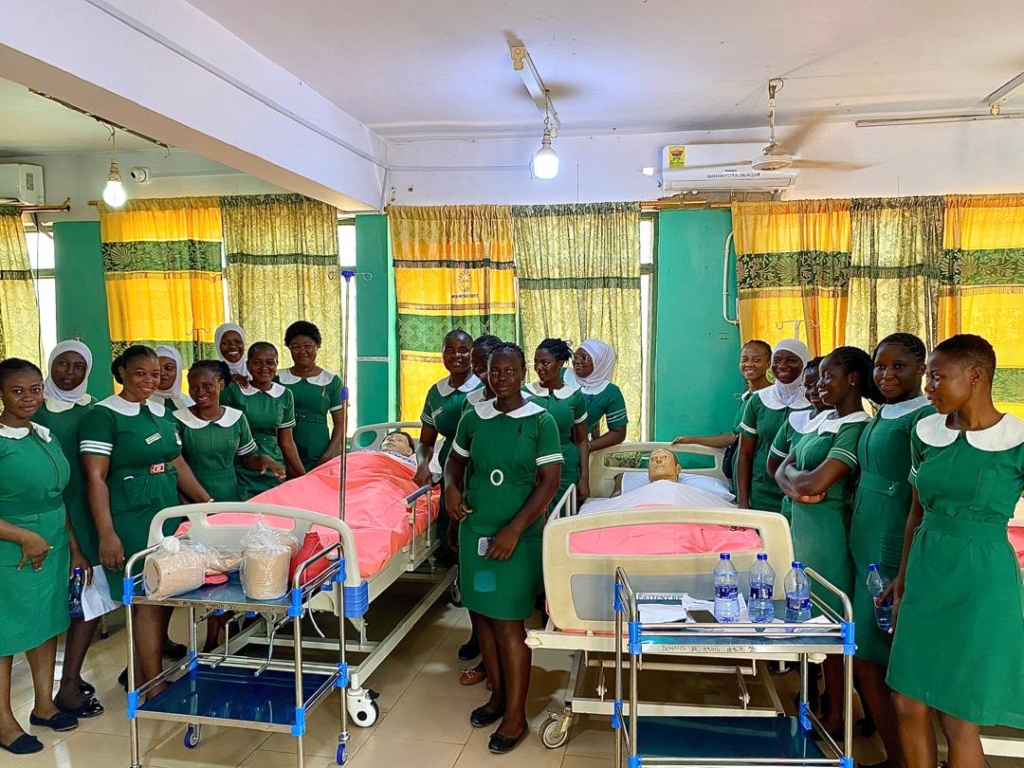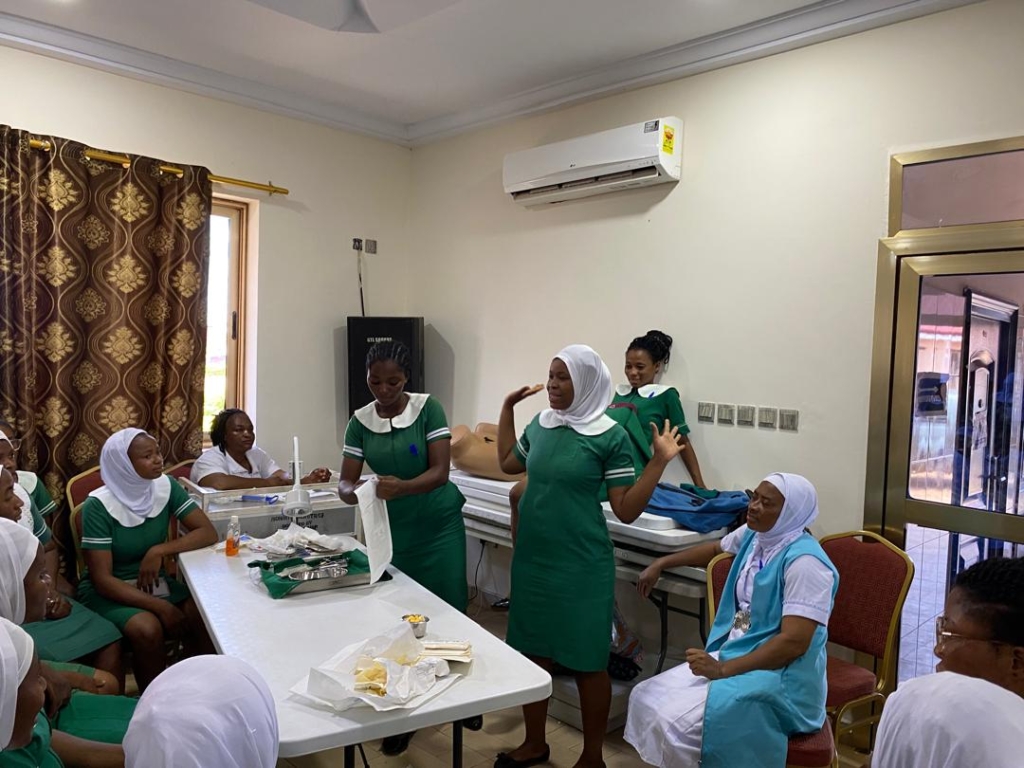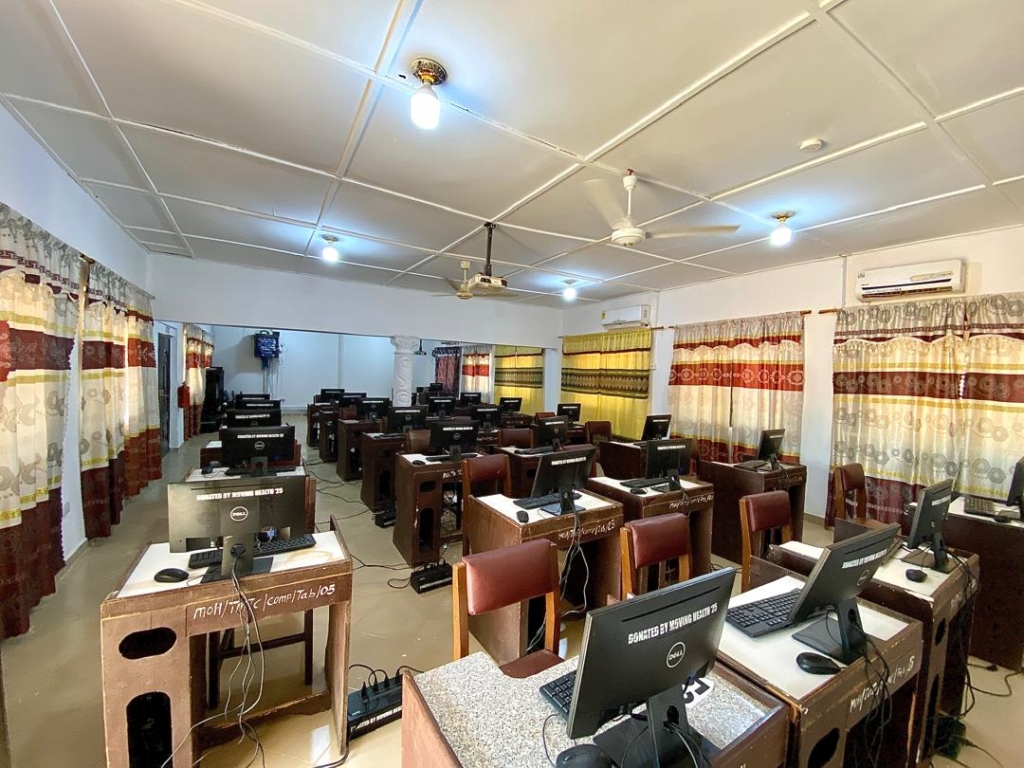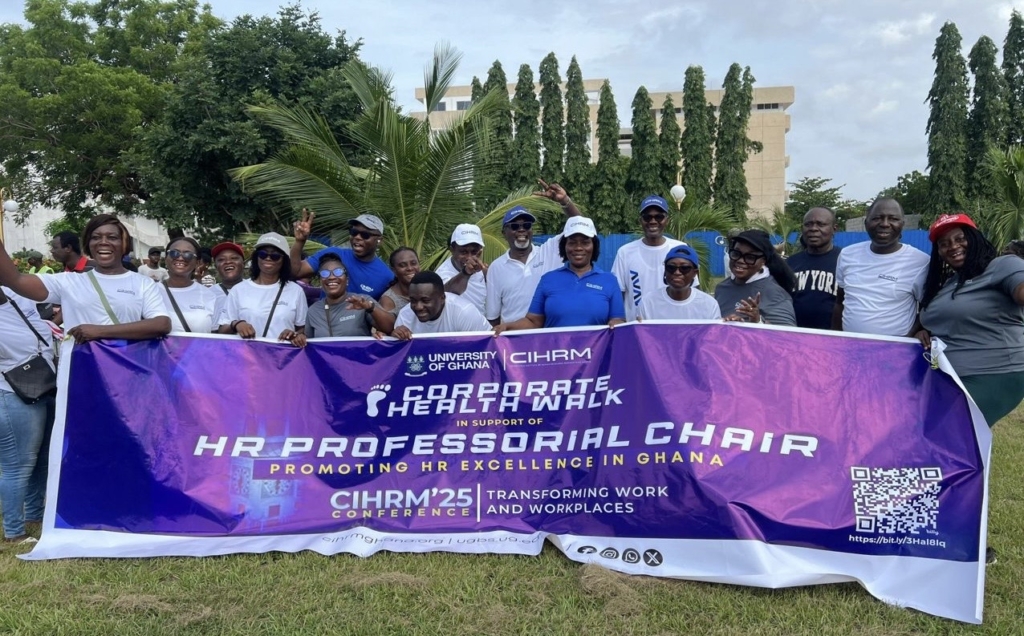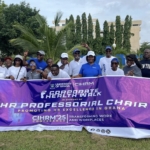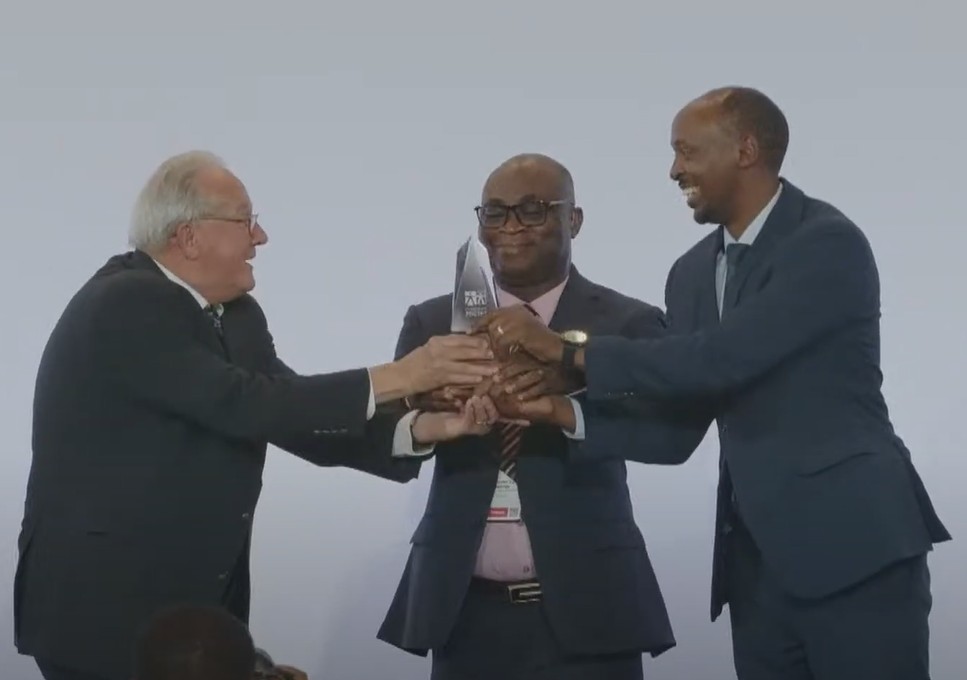Standard Chartered empowers next generation of girls to embrace their periods proudly
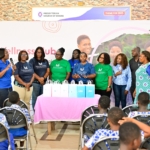
Every month, over one billion girls and women around the world experience menstruation, yet for many, this natural biological process is shrouded in stigma, misinformation, and cultural misconceptions.
In communities where access to menstrual hygiene products and education remains limited, young girls risk exclusion, embarrassment, and even missing out on their education.
Recognising the need to change this narrative, Standard Chartered Bank, in partnership with United Way Ghana, organised a menstrual health awareness session dubbed ‘Her Wellness Hub’ at the Pantang Presby Basic School to mark World Menstrual Health Day. The session provided a safe space for young girls to learn, ask questions, and openly discuss menstruation without shame.
Medical practioner and health advocate, Dr. Hanna-Lisa Tetteh, led an interactive session debunking harmful menstrual myths such as the belief that girls should not bathe during their period or that menstruation is a curse. She emphasised the importance of good hygiene practices, from regular bathing to proper use of sanitary pads and demonstrated how to properly wear a pad.
The conversation extended beyond physical care, addressing the emotional and social challenges many young girls face during menstruation, especially in spaces where boys and even adults may not be sensitised. Students bravely shared personal experiences of discomfort and stigma, highlighting the pressing need for more period-positive conversations in schools, homes, and communities.
Female staff from Standard Chartered joined breakout sessions, offering mentorship and candidly answering the girls’ questions about growing up, managing their period in public spaces, and navigating insensitive cultural beliefs. Their presence not only fostered connection but underscored the Bank’s sincere commitment to girl-child empowerment.
To ensure that no girl is left behind due to a lack of resources, Standard Chartered distributed dignity kits including locally made sanitary pads, shaving sticks, and new underwear to all girls present at the event. The Bank also donated additional pads to the school for future use.
“Periods are not a curse. They’re a normal part of life, and no girl should feel ashamed because of it,” remarked one of the students, echoing the importance of the initiative in changing the way menstruation is viewed in communities.
This event is one of many under Standard Chartered’s social impact initiatives, reinforcing the Bank’s mission to empower communities and champion inclusion, especially for young girls who represent Ghana’s future leaders.


